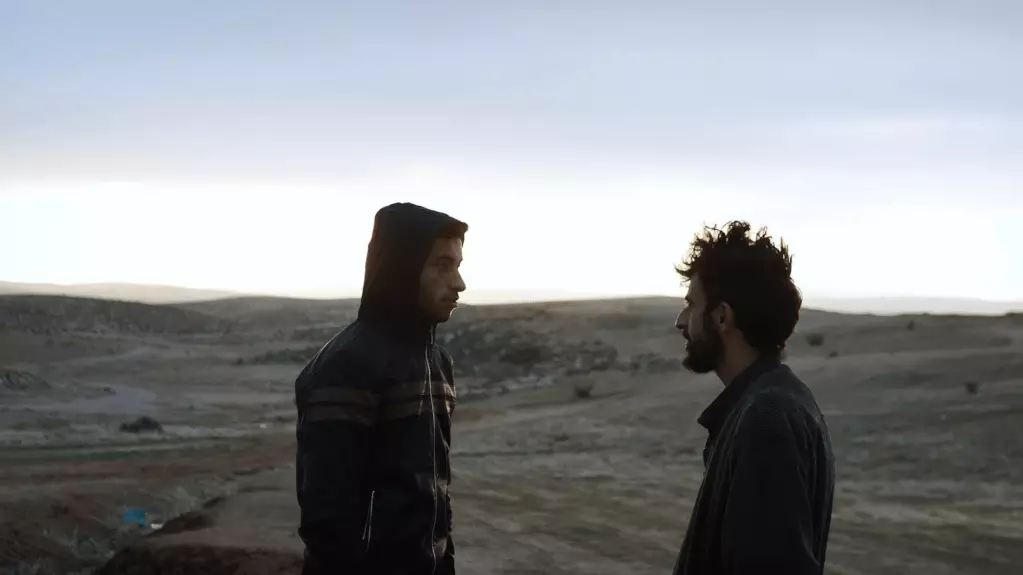The world of documentary filmmaking has a unique ability to shine a light on pressing social issues, and “No Other Land” exemplifies this characteristic. Directed by a collaborative effort of Palestinian and Israeli filmmakers, the documentary holds a mirror to one of the most profound and enduring conflicts of our time. With its theatrical premiere at Film Forum in New York, amid the turbulent backdrop of the Israel-Hamas war, the film does not shy away from delving into the complexities surrounding the Israeli military’s incremental expulsion of the West Bank community of Masafer Yatta.
Scheduled for release during a ceasefire, “No Other Land” emerges as a critical meditation on the underlying causes of enmity in the region, transcending a mere chronological recounting of events. The filmmakers—Basel Adra, Hamdan Ballal, Yuval Abraham, and Rachel Szor—root their narrative in the lived experiences of the inhabitants of Masafer Yatta, a site encumbered by legalities and military designations. Adra, a resident of Masafer Yatta and a journalist, utilizes his experiences over five years (2019-2023) to document life under constant threat of eviction. The film showcases a series of demolitions that have laid waste to homes, schools, and vital community resources like water wells.
In juxtaposition, Yuval Abraham, an Israeli journalist who enjoys greater mobility, amplifies the voices of those oppressed by the state machinery. Their evolving friendship symbolizes the potential for connection and understanding amidst seemingly insurmountable divisions. This relationship not only serves as a narrative anchor but also offers viewers a glimmer of hope that empathy can emerge from conflict.
Documentary filmmaking, at its best, acts as a form of resistance. “No Other Land” goes beyond aesthetic representation; it becomes a tool for advocacy. Through its poignant storytelling, the film serves as a platform for displaced residents to voice their struggles and resistances. It portrays protests and peaceful demonstrations against government-sanctioned mass evictions, embodying a spirit of resilience even in the face of daunting odds. This cinematic endeavor does more than record events; it instills a sense of urgency and importance, compelling audiences to reflect critically on their perceptions of the Israeli-Palestinian conflict.
The 100% rating on Rotten Tomatoes underscores the film’s powerful reception among critics, emphasizing that it resonates on both an emotional and intellectual level. By winning accolades like Best Documentary at the Berlin Film Festival, “No Other Land” is not just a cinematic experience but a crucial entry point into understanding the rigorous and often heartbreaking realities faced by residents like Adra.
The film’s release is noteworthy not only for its content but also for the wider movie landscape it inhabits. Alongside it, various films such as “Love Me,” directed by Sam Zuchero, explore themes of love and technology in imaginative narratives that diverge from the visceral realities depicted in “No Other Land.” In “Love Me,” set in a post-human world, the romantic connection between a buoy and a satellite resembles a reimagining of identity and existence. In stark contrast, the gritty narrative of “No Other Land” reminds audiences that while some stories soar into the abstract, the narratives of marginalized communities remain grounded in tangible strife.
Meanwhile, “This Woman,” directed by feminist artist Alan Zhang, introduces another dimension to the current cinematic discourse. By exploring the struggles of a woman attempting to find herself amid personal and societal pressures, Zhang’s film contributes to a broader conversation about identity in a rapidly changing world. Together, these films illustrate the rich diversity of contemporary cinema, opening pathways for dialogue on personal and collective identity.
As “No Other Land” prepares to reach a wider audience, it serves as a vital reminder of the power of storytelling in understanding complex sociopolitical landscapes. While contemporary films may entertain and provoke thought, “No Other Land” demands that viewers confront uncomfortable truths about displacement, identity, and resilience. Ultimately, it is not just a documentary; it is a call for empathy toward those who continue to endure in the face of adversity. With its multifaceted voices and unwavering commitment to authenticity, the film stands as a testament to the enduring power of cinema as both art and activism.

